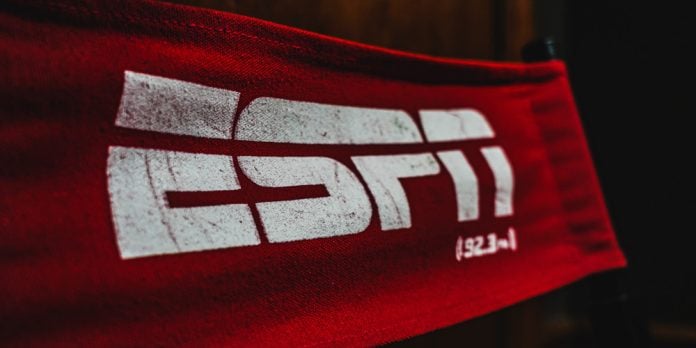The convergence of sports, media and betting is something that has been spoken about for a long time, but a phenomenon that is yet to truly cut through.
As evidenced by the recent closure of FOX BET, it is difficult to find success through a strong media brand alone, without having an extremely strong product.
SBC Media was recently invited to the Unofficial Partner Podcast event in London in partnership with LiveScore Group, a firm that is defined by its mission of convergence. At the event, ESPN BET’s prospects became a large talking topic as one of the world’s largest sports media brands aims to succeed in its conversion strategy.
In recent years, profitability pressures for both betting and media companies have made both sides of the coin examine how they can gain more efficiencies, leading to recognition that the strong relationship between the two poses “many opportunities to leverage it as a strategic edge”.
In the views of Unofficial Partner’s guests, there is one market that has brought convergence into the forefront of business – the US. North American developments have caught a great deal of attention post-PASPA, but have also done a lot to drive the model forward.
Mike Falconer, Sportradar’s Vice President of Strategy, attributed this to a combination of well-funded operators using large player databases, which provided these companies with a strong starting point, and ‘the most extraordinary media landscape in the world’.
“There isn’t a country in the world that has the same number of tier-one, established sports media businesses,” he said.
The market saw the conclusion of a ‘transactional phase’ regarding convergence, as shown by PENN Entertainment’s mammoth $2bn deal with ESPN. Meanwhile, FanDuel and DraftKings have elements of convergence in their own history, having monetized audiences obtained through fantasy sports.
In Falconer’s view, the US has entered a third phase of “very interesting vertical integrations, and proper convergence between media and betting operators,” like FanDuel TV and ESPN’s foray into the sportsbook industry.
“The US is at a point now where I don’t think anyone quite knows what the final model will be, as FanDuel has built up such market leadership it’s going to be difficult to challenge it, but at the same time there are very meaningful investments by both media and betting operators to see what will come out of convergence.”
Meanwhile, James Liddy, Managing Director and Head of Gaming, Lodging & Leisure EMEA at Deutsche Bank, remarked: “Sports betting is becoming more and more accepted as a recreational activity that a lot of people enjoy, America has really proven that.”
LiveScore Group’s CEO Sam Sadi gave his opinion on the break up of the Barstool Sports/Penn Entertainment deal and the enactment of the ESPN BET transaction: “Quite simply, Barstool users were asked to downgrade their sports betting experience and use an inferior sportsbook product.
“For the same reason, ESPN BET will likely not work because ESPN users will be asked to switch from DraftKings and FanDuel, which provide exceptional products and services, to a sportsbook that has been built in the last year, pretty much.”
Lastly, Charlie Boss, Chief Commercial Officer at the Jockey Club, outlined his view that the hurdle for ESPN BET is that Disney is ‘fundamentally uncomfortable with being a betting company’, and that ultimately gambling is ‘at odds with the values of the master brand’.
“Unless ESPN gets spun off, I can’t see them doing this wholeheartedly, and I think that if you do anything half-heartedly it doesn’t work. When it comes to core decisions around changing editorial to drive betting, I don’t think they will.”
Editor’s Note: This is based on an extract of a report from SBC News’ Ted Orme-Claye. You can read the full story that tackles further issues relating to convergence and European betting markets by clicking here.













